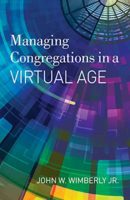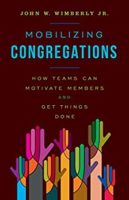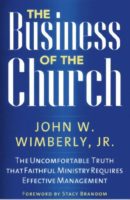Why would anyone devote time, money, or energy to a congregation when they could go for a walk in the park, spend time with family, watch a child play soccer, or make a piece of art? What is it about some congregations that makes people choose them over so many other options? What makes a congregation unique?
Businesspeople talk about uniqueness as “competitive advantage.” A company with no competitive advantage over its competitors is in trouble, while a company that maximizes its competitive advantage is likely to succeed.
A Competitive Environment
When I retired after a lifetime locked into attending church on Sundays, I suddenly realized I had amazing options every Sunday morning. So does every church member! There had better be something uniquely compelling about coming to worship, attending a spiritual formation experience, or serving on a congregational team, committee, or board. If not, people will choose other ways to use their time.
In this competitive environment, I am amazed how little thought lay and ordained leaders give to developing and highlighting their congregation’s unique qualities. Once, we could assume that what we had to offer was automatically unique—but that’s no longer so.
It used to be that an adult class in a congregation was unique. But today, people can access classes on the web taught by faculty at prestigious universities and seminaries. In person, they can attend lifelong learning classes taught by skilled instructors on fascinating topics, including spiritual growth, theology, and Biblical studies. The congregation-based adult ed class competes with all these other options.
Our worship services compete with tens of thousands of live-streaming services from other congregations. Occasionally on Sunday morning, I go from one worship experience to the next on my computer. If the music is terrible or the sermon and liturgy uninspiring, sometimes I hang in there, but more often I bail. But if a service is filled with theological and Biblical depth, I definitely stick around and grow spiritually as a result.
Congregational Uniqueness
The uniqueness of congregational mission work has long been challenged by other nonprofit organizations. Would you prefer to paint the walls of the church nursery or build a house for Habitat for Humanity? I’d do both—but for most people without a specific attachment to a congregation or the Church itself, those nursery walls aren’t all that appealing. At the end of a single day of volunteer work with Habitat, one has made a significant step in creating housing for a low-income family. You did some good, and it feels good.
Many congregations advocate on social issues such as the environment, racism, sexism, and poverty. But non-church advocacy groups have become more powerful as voices for social justice than religious groups. When I advocated for immigration reform on Capitol Hill as part of a national immigration group, we were taken seriously. When I went into the same congressional offices for a religious group to say the same things, the staff were polite but clearly not interested. What do congregations offer in this field that is unique? What differentiates us from non-church advocates?
What Is Our Congregation Good At?
The question of uniqueness takes us to the question of core competency. What is a congregation’s area of greatest competence? For me, it starts and ends with theology. A congregation stands on the foundation of its core theological convictions. When our actions reflect those core beliefs, we can make a difference in the world and attract people to our ministries. When our actions reflect only secular trends and beliefs, we lose our uniqueness—and with it our appeal.
Why go to church to hear a sermon that is a mash of secular psychology, social justice ideas that reflect familiar party platforms, and generic spiritual concepts? I can get all of that from secular sources. What I can’t get is profound insights from the sacred scriptures of Christianity, Islam, Judaism, and other world religions. I can’t get the power of a congregation singing and praying together. I can’t get the kind of pastoral care clergy and members can give each other. I can’t get the type of community and care that exists in a tightly knit congregation. These things are unique to congregations. They are our competitive advantage!
Congregations absolutely should engage in social justice work. However, that engagement must flow from the congregation’s theological beliefs. When we frame our advocacy this way, we add something unique to the social justice movement. Imagine the civil rights movement of the 1960s without Dr. Martin Luther King Jr., framing civil rights with profound theological and Biblical teaching. Using explicitly theological arguments, he engaged not just the people’s minds; he inspired their hearts as well.
Uniqueness Rooted in Theology
I am not suggesting that we abandon adult education to TED Talks. But our adult education programs must be rooted in our core beliefs and theological traditions. Every class should leave participants with a better understanding of their own beliefs and the reasons behind them.
Congregations should engage in service or mission work. A church might well start a feeding program for the homeless, for example, because of scriptural mandates to feed the hungry. They don’t need to insist that those they feed—or program volunteers—adhere to their theological beliefs. But they do need to be clear about how their reasons for creating and maintaining the program are theological and Biblical. That is how to do mission work that is unique.
In a world where so many things morph together as if blended into a big smoothie, congregations need to accentuate, proclaim, and live our uniqueness, our theological core beliefs. When we do so we stand out in ways that cause people to take notice. Most will disagree with our beliefs. Some will check us out. A few will join us. Whatever others do, we will be a unique entity in the world, not just another generic organization.
John Wimberly is an experienced pastor and consultant. As a consultant, he has worked with congregations and judicatories on strategic planning, staff designs for the 21st century, and congregational growth as well as financial and administrative management. He has MBA, MDiv, and PhD (theology) degrees. His books focus on effective management and leadership. John believes congregations can have a bright future!




